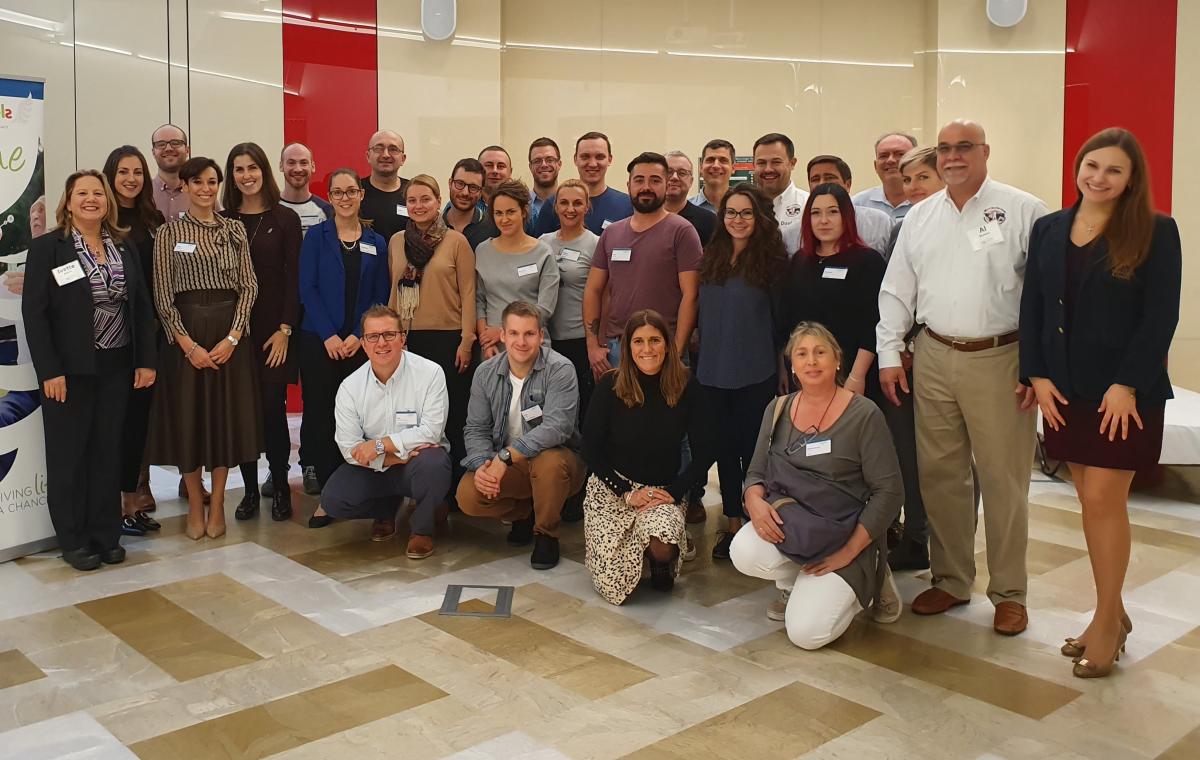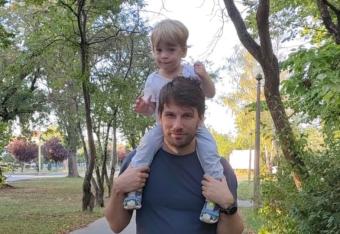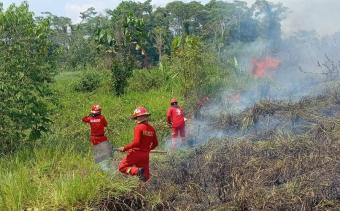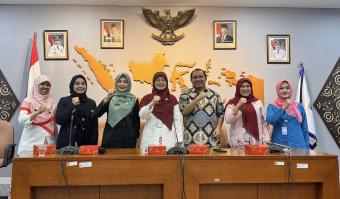Having worked with countless hospitals over the years, it is not uncommon for us to hear emergency medical services (EMS) getting the blame for delivering false positives, not reporting the correct time of symptom onset, taking too long to arrive or not pre-notifying the hospital that a stroke patient is on the way.

There is no denying the vital role that EMS play in the management of an acute stroke patient. This is why we have created various resources for EMS such as checklists, training videos and presentations, an interactive online training module and why our consultants are increasingly working with ambulance teams, emergency call centers and firefighters.
To take this effort one step further, we have established a partnership with University of Miami Miller School of Medicine (UMMSM) to make their Advanced Stroke Life Support® (ASLS) Course available to the Angels community.
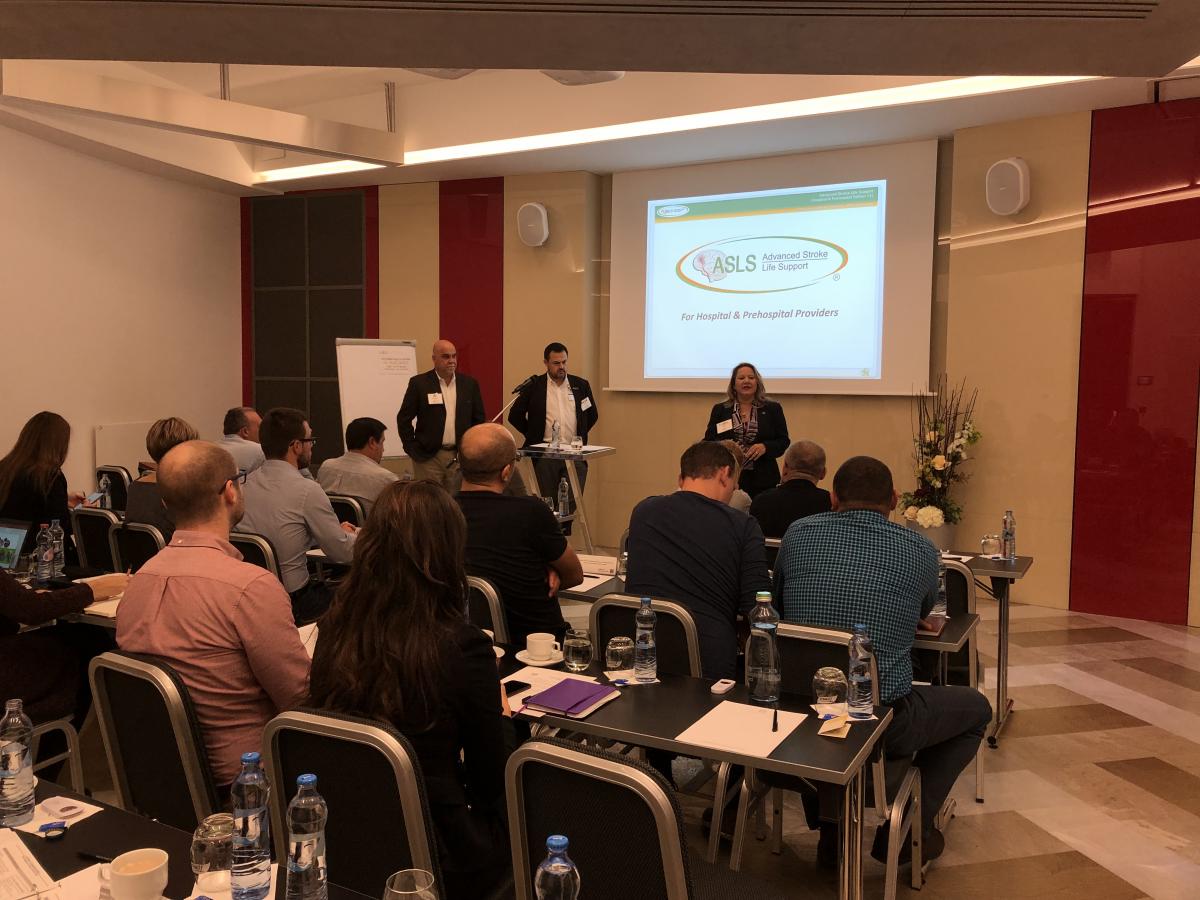
Developed more than 20 years ago by a consortium of stroke neurologists, emergency physicians, nurses, paramedics and educators from UMMSM’s Gordon Center for Research in Medical Education (GCRME), this comprehensive course focuses on educating prehospital personnel on all aspects of stroke and is appropriate for all healthcare providers involved in the management of acute stroke patients.
The ASLS® Course has already been held in UK, Mexico, Hong Kong, Saudi Arabia and India where in total 127 training centers were created with 1262 certified instructors.
Recently, during the European Emergency Medicine Congress held by European Society for Emergency Medicine (EUSEM) in Prague, we had the opportunity to launch the first ASLS® Course Train the Trainer in Europe involving 18 highly motivated participants from six different countries: Czech Republic, Italy, Lithuania, Slovakia, Spain and Ukraine.
The two-day workshop was led by three ASLS® trainers who flew all the way from the US and UK; Ivette Motola, Angel “Al” Brotons and David Davis. The first day was spent on general education about stroke whereas the second day focused on teaching our participants how to become trainers and guide the course themselves once they go back to their countries.
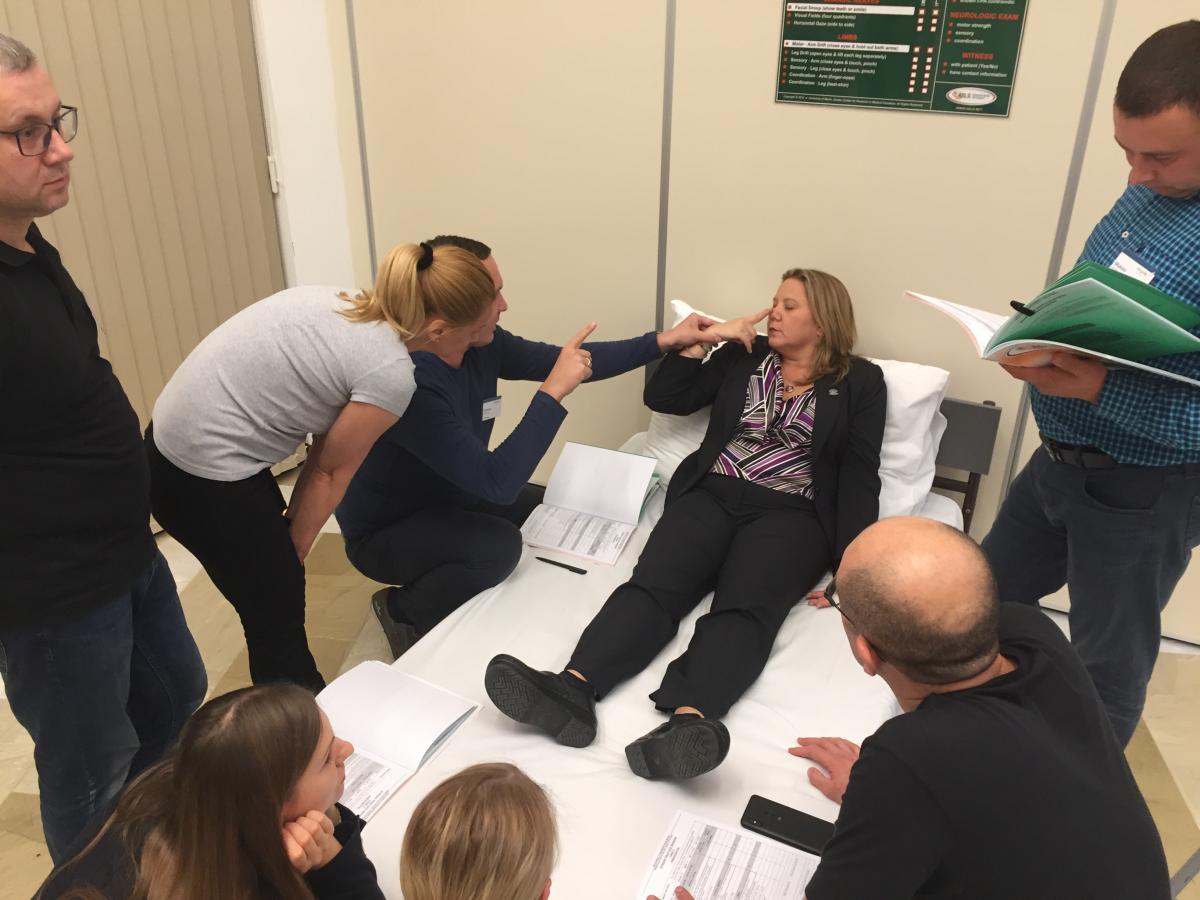
The course is not just a series of presentations but includes engaging practical sessions, video case workshops and review games next to clearly structured didactic lectures. Everyone had a lot of fun especially when practicing the Miami Emergency Neurologic Deficit (MEND) Exam on simulated patients or testing their stroke knowledge on the “Who Wants to be a Stroke Expert” quiz at the end of the day.
The attendees’ feedback regarding the course was overwhelmingly positive. One participant stated that they have “learned more about stroke and stroke care than in any text book I’ve read before” and loved the “engaging interactivity and hands-on practical sessions”. Everyone seemed excited to pass on their newly acquired knowledge to their colleagues back home as a certified ASLS® Course trainer.
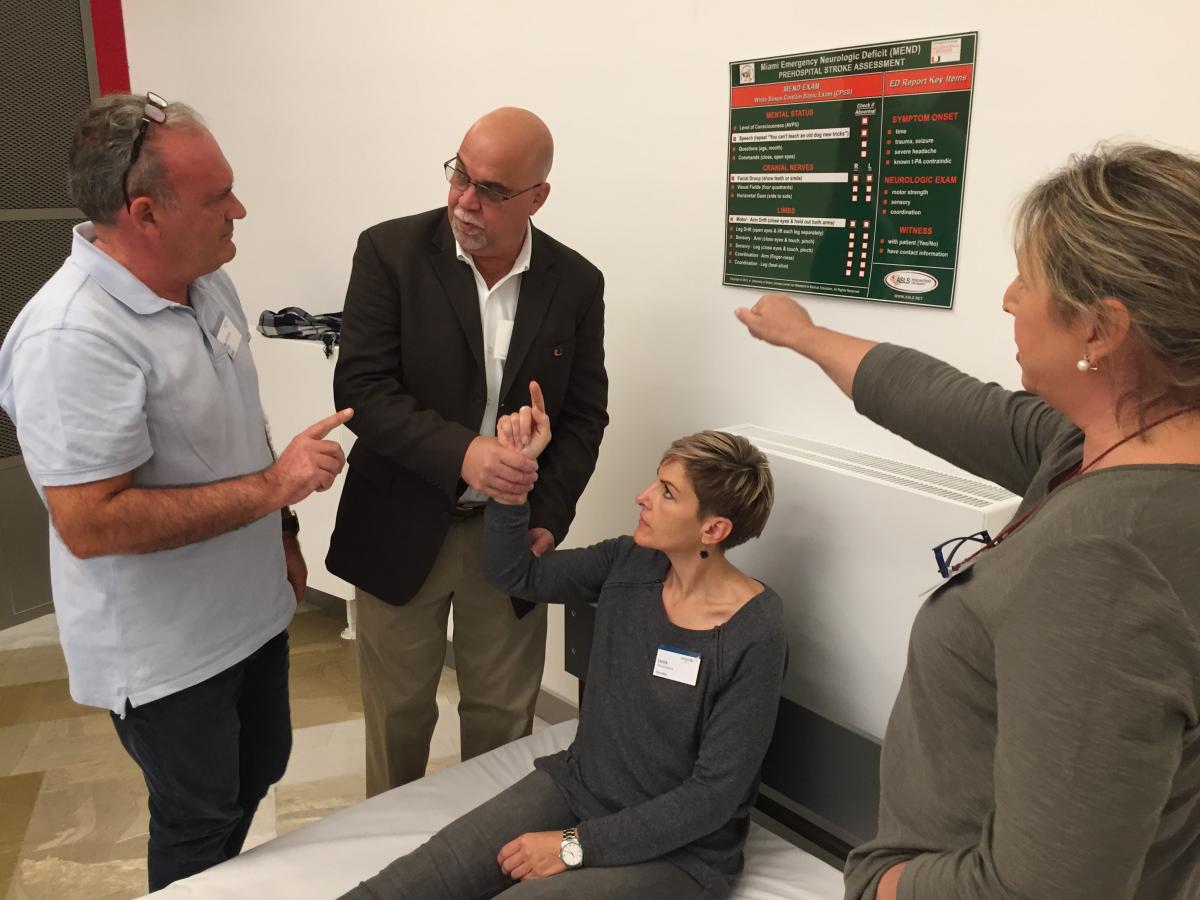
In cooperation with the Angels Initiative, the ASLS® e-learning course is currently being translated into 12 different European languages and will soon be available on the Angels website. This will be an amazing add-on to the practical course and will facilitate distribution of a critically-important training that can help improve detection, management and stroke patient triage among first responders throughout Europe.
Thanks again to the Miami team who with their structured training will help save lives!
